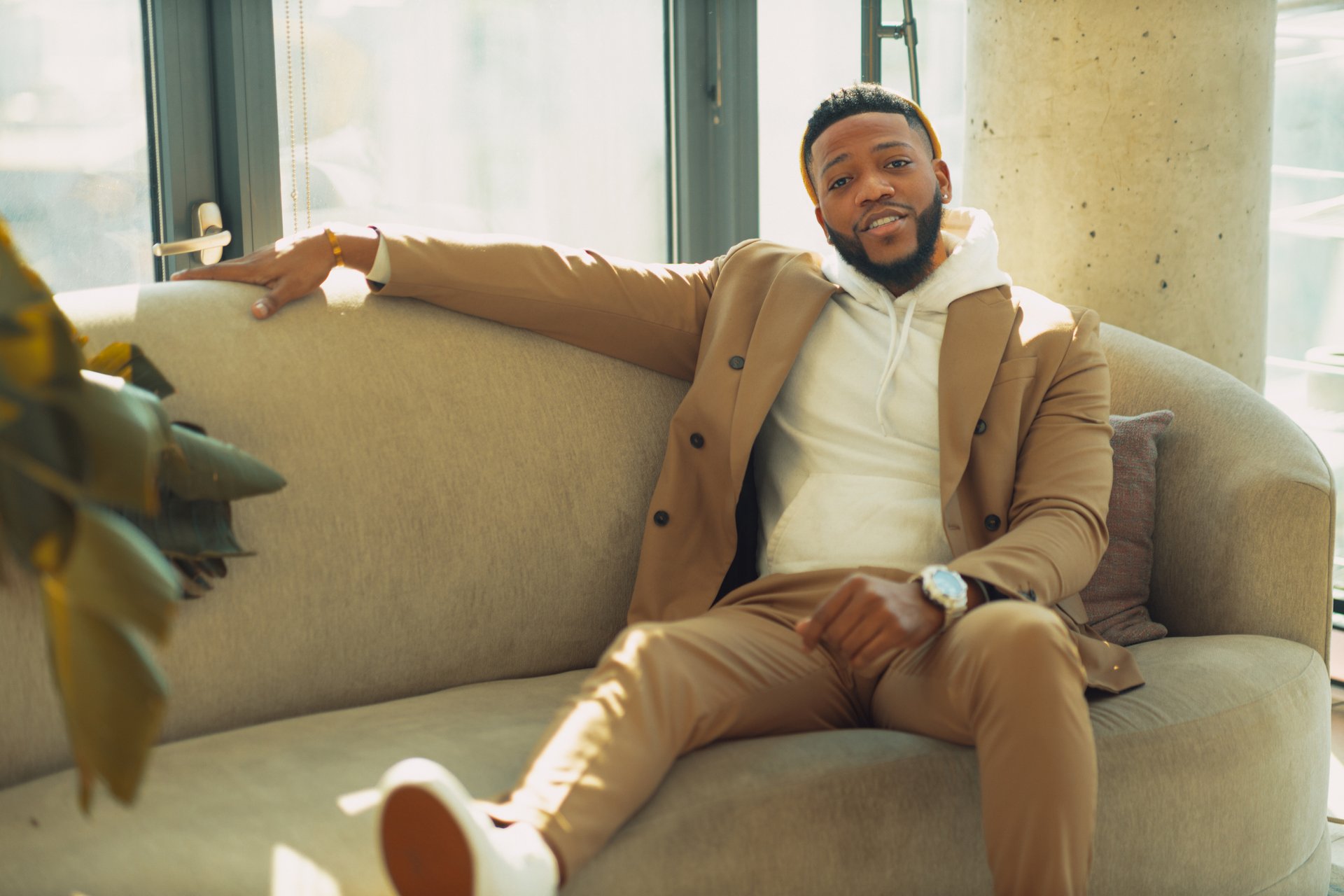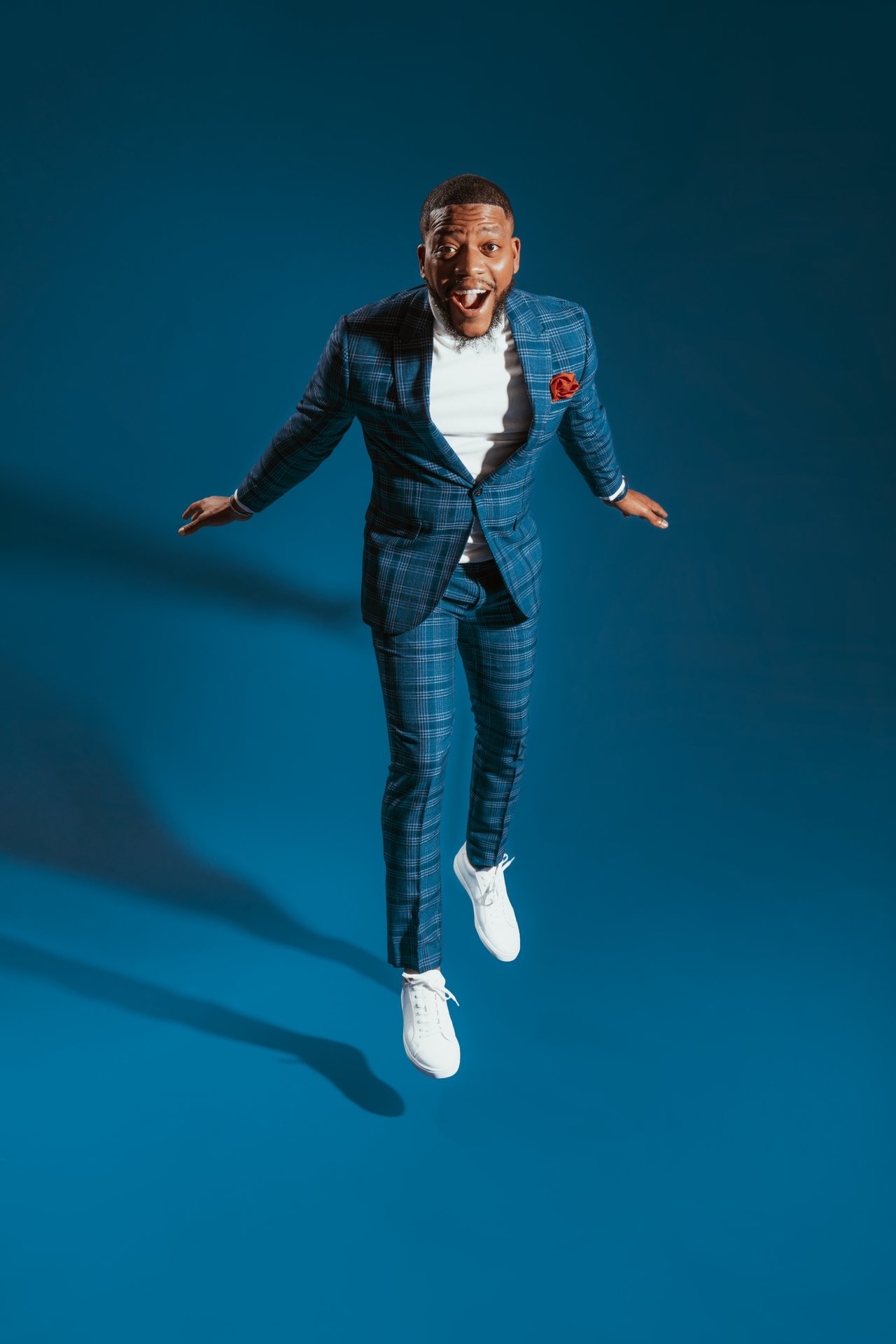There’s a plethora of Black men that you could place on a cover. How do you go about mapping out and selecting the men we see on the covers?
Aside from the more prominent names, there are a few ways we go about it. I’m drawn towards featuring men whom society may not necessarily know of in large numbers. For instance, our recent cover was Charles D. King – our audience, for the most part, was probably unfamiliar with him but knew the actors in the films he helped produce. Charles is a mogul, and I say that with emphasis because if it wasn’t for him, some of these people known by face value might not be as big. So, it’s important for us to highlight individuals who aren’t getting the attention they should. On the flip side, we featured Michael Vick, which was a massive deal for us though it came with a bit of backlash, mainly from people outside of our community. I stood by it because he’s been doing great things since that scandal, and it’s like, wow, “Black men cannot get a second chance in this world.”
Not to compare but based on the content The Quintessential Gentleman focuses on, the magazine has an element of Black Enterprise.
First, Black Enterprise is a staple and to be compared to them is something I am grateful for; I understand the comparison, but what differentiates us is that we’re more of a lifestyle brand. Cultivating a community of younger thinkers is a goal of mine. When I think of it, Black Enterprise features more CEOs talking business, and there are the one-offs, but it’s more like a Black Forbes. With QG, I want us to be more lifestyle and discuss grooming habits, the music we’re interested in, and TV & film plus athletes managing their lifestyles from their foundations, families to politics.
Name three individuals you’d like to have on a cover and why?
Usher – who is my favorite singer ever. I love how he’s remained relevant all these years. It’s a testament to the work he’s put in over the last almost three decades and how timeless everything he’s touched has become. Tyler James Williams is an example of a Quintessential Gentleman; from how he champions Black women to his work ethics. It is both admirable and inspirational. Finally, Kelvin Harrison Jr. is so talented, and I’m blown away by this guy even with him being so young and new to the industry.
Talk to me about the idea of making your issues available for print in a world where everything in publishing is heavily focused on digital.
Personally, it’s about creating our own version of a coffee book. The way it’s designed is intentional, along with the content we fill each issue up with. It’s print to order, so if you visit our site and come across a cover released in 2018, you can still have that printed out for yourself and learn something you might’ve missed.
Also, we don’t always see Black faces when you’re looking at these different publications at whichever newsstand, especially Black men. I wanted QG to be the publication to offer that. I want to feel and see the product in its flesh. It’s something about walking into my friends’ houses and seeing it on their tables – I like how it looks.
I’m interested in learning about a couple of the partnerships QG has because I see the value, but I’m wondering what your sponsors see and what motivates them to advertise with you.
One of the partnerships we’ve been cultivating and growing is with Google. We’ve worked on several events, most recently our Black Men in Tech virtual conversation which was very powerful. These conversations need to be had. “Why are we not in tech” in large numbers anyhow? Why don’t we consume more of these roles? Is it fear because the assumption is that you must be a coder?
Our audience isn’t necessarily looking for the specs and the information on the ram, you know, the tech talk. Our readers want to know, “does it work, how does it work, and can it assist me with things?” I love that for us, though, because I want it to become standard that you must stop by The Quintessential Gentleman if you’re going to have conversations with Black men. Just like anyone who’s running for the presidency has to perhaps stop by The View, Trevor Noah, or Good Morning America.
Lastly, how do you elevate from where you are currently, and what does QG’s next phase look like?
Our current phase is about enhancing and building more of the “community” piece; the grassroots of it all because we have our digital footprint and credibility. The goal is to get to the people via conferences, workshops, and events, i.e., mental health talks. I want people to be able to leave our events with some form of a resource and leave us with their opinions on what else they want from the brand. We just want to showcase strong Black men, and there’s an avenue there to do so.
IG (Personal): @EricThomasK
IG (Business): @TheQGentleman
Website: Theqgentleman.com





